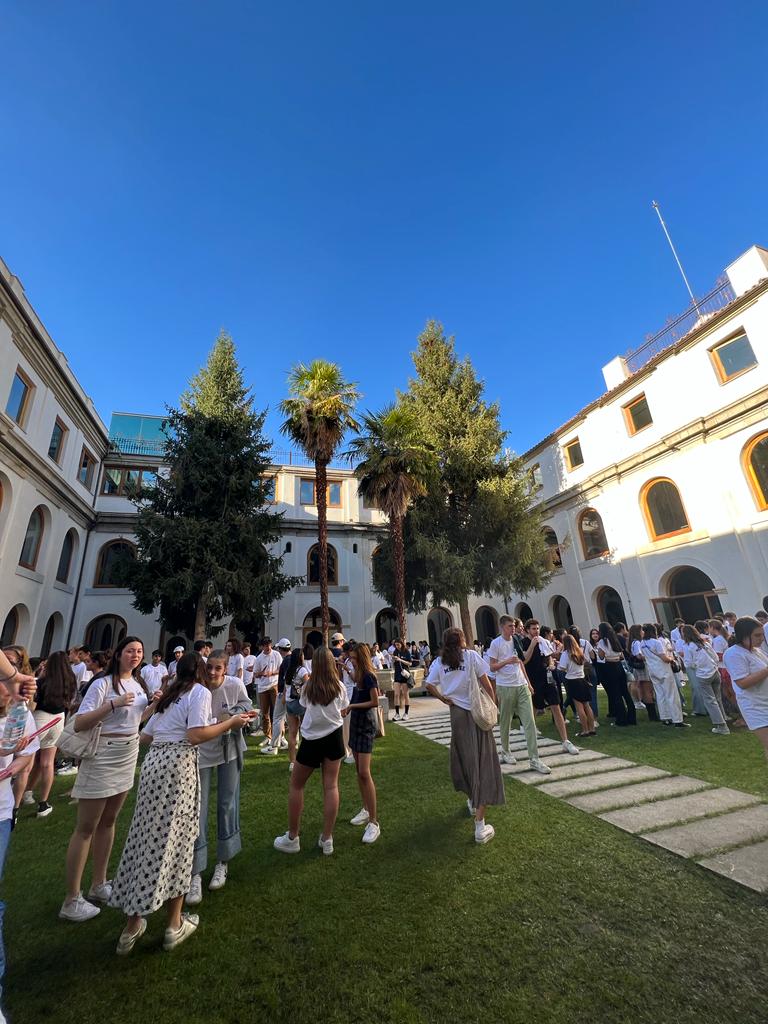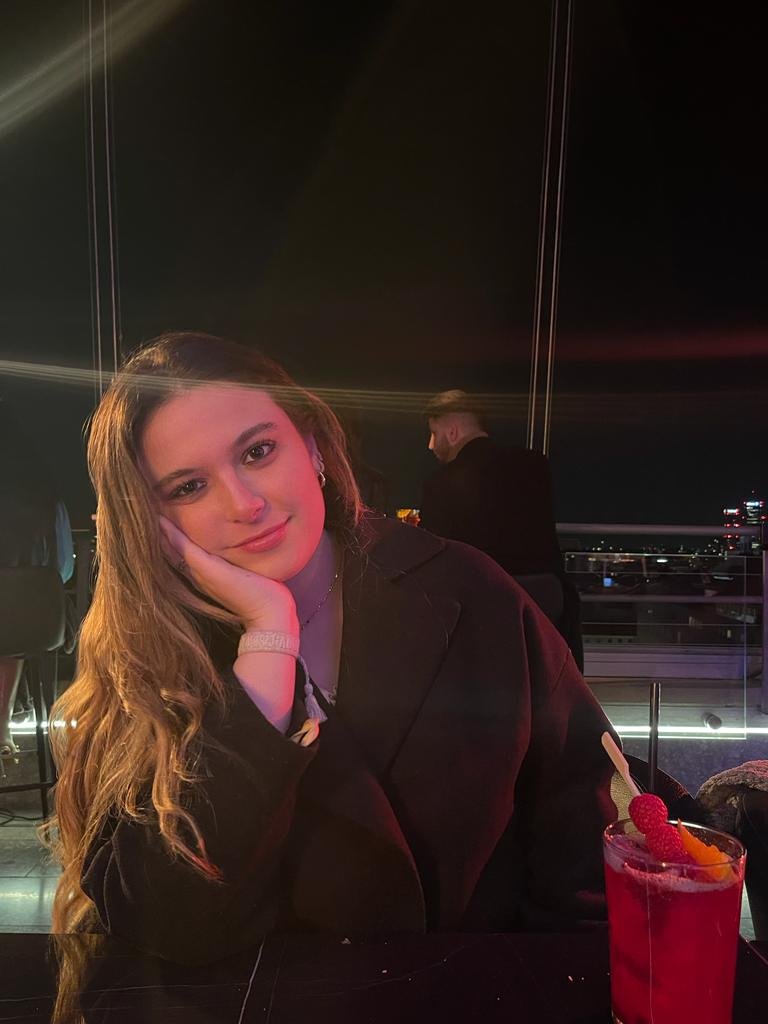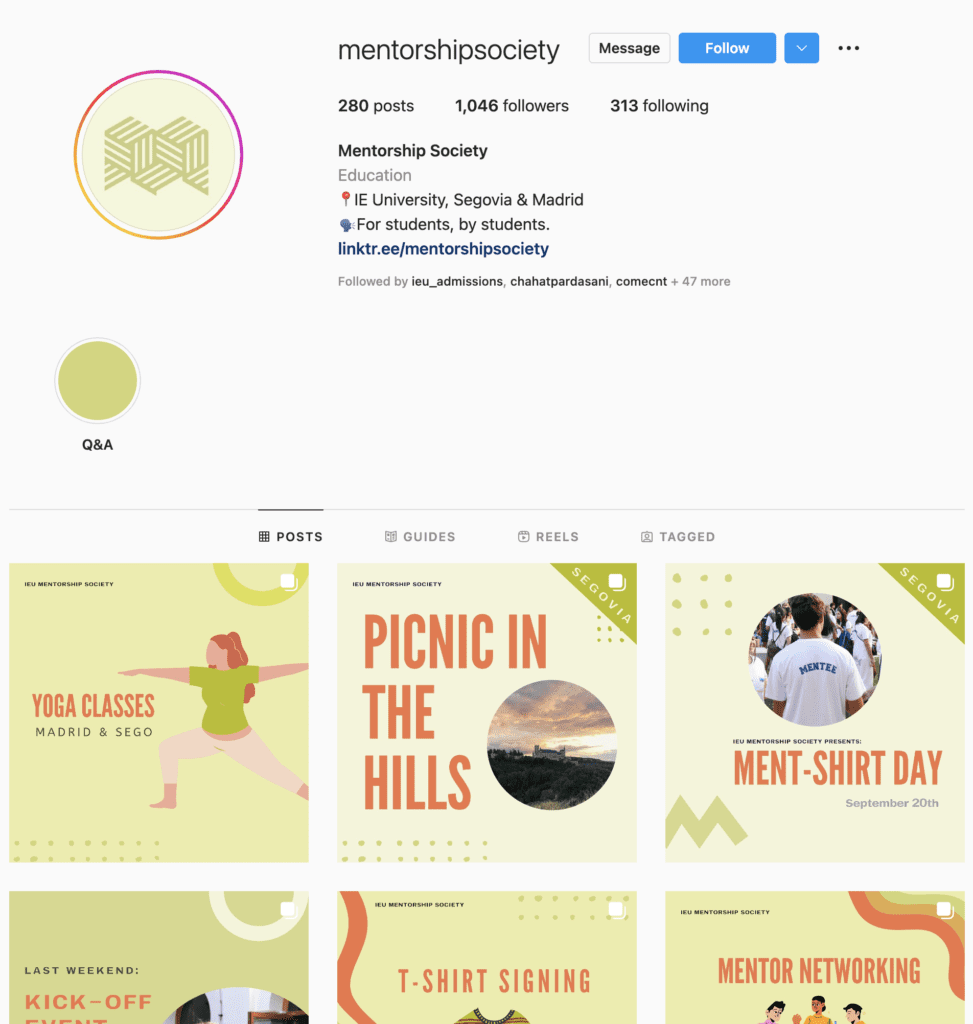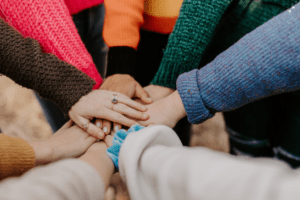Five hundred new students have joined the IE University Segovia campus this 2022-2023 academic year. What better way to be guided and welcome to the new environment than those one, two, three, or four years their senior? This is the core intent of the Mentorship Society at IE University, present both in Madrid and Segovia.
After students are fully accepted to IE, they receive invitations to join the Mentorship Society – where they can apply detailing their personalities, their degrees, tastes, and preferences, etc. Once they have submitted and are accepted, they will be matched to a mentor.
Most times mentors will be studying the same degree as their mentees, just the previous academic years, but this is not always the case.


Last Saturday, 10th September, the Mentorship Society held a ‘Kick-Off’ event at both campuses.

Mia Kaaki, a second-year BCDM student, former mentee, and current mentor, explains what this event consisted of:
“We had a ceremony in the Aula Magna with [all the] mentees. Mentors explained a bit about campus and Segovia life. We also had a ‘Shark Tank’ challenge.”
Unlike some of my peers and friends like Mia, I have never been a mentee. However, because I know there is so much thrill and excitement surrounding these partnerships, I wanted more insight into the world and successful society I missed out on.

Meet Tancrede Thoma (mentor, pictured in the striped T-shirt) and Mia Kaaki (mentee, pictured in the white dress). Like Mia, Tancrede started with BCDM at IE’s Segovia campus. Though today, both Tancrede and Mia have been mentors and mentees. I interviewed both members on their respective positions in the Mentorship Society.
Q: What is it like being a mentor/mentee in Segovia? What were some activities you did or that were proposed to you?
T. Thoma: Being a mentor in Segovia was a lot of fun! Since everything is so close, it was quite easy to get to see my mentees during the first few weeks. We had some activities offered during the first few weeks, but the most fun part was just hanging out with them [and making our] own plans [together].
M. Kaaki: Being a mentee gave me the opportunity to meet a lot of people, especially in Segovia since we are all a small community and I had the chance to meet students from my class before the school year began. The mentorship society offers a variety of activities such as icebreakers, networking events, master class series, etc.
Q: Why did you decide to be a mentor/mentee?
T. Thoma: I was a mentee during my first year and that was a lot of help at the beginning. I got to meet 2nd years which during COVID was quite difficult since many social activities were restricted. I enjoyed that and decided to be a mentor because I wanted to help freshmen get used to this new life in the smoothest way possible. I also wanted to meet new people and hopefully make new friends.
M. Kaaki: I decided to be a mentee because I was told that it would help me get into IE’s social life more easily and get an idea of what my bachelor was like, and the year ahead of me through my mentor’s guidance.
Q: Was the change from mentee to mentor a big jump?
T. Thoma: The change between the two roles wasn’t too jarring since there was a summer in between. Sure, it’s odd to change but that’s mainly due to the fact that I went from being a freshman to a sophomore, which always feels strange.
M. Kaaki: This year I decided to be a mentor and I realized that as one, you take on a bigger role and more responsibilities. The Mentorship Society expects you to attend events that are not mandatory for mentees, and I am assigned to check up on my mentees from time to time and make sure that their year is going smoothly.
Q: What advice would you give to this year’s incoming mentors/mentees?
T. Thoma: I would say that the most important thing is to try and see your mentees on a regular basis. Obviously, they’ll have their own lives but it’s always a good idea to check up on whatever they may need. Some mentees might not need it, and they’ll say it if they don’t want any help, but it’s important to check just in case. Also, if some of your friends are also mentors, make sure you get together with your mentees, it can be quite fun.
M. Kaaki: I would say engage in as many events and activities organized by the society because you get to know different mentees on a different level, and it is a way to get out of your comfort zone and make the most out of the events you are attending.
Q: How do you think COVID-19 changed the importance of the Mentorship Society?
T. Thoma: COVID-19 restricted many activities which made it hard to meet new people, especially outside our degrees or academic years. The mentorship society helped bridge that gap.
M. Kaaki: I believe COVID-19 has had a big impact on the Mentorship Society. Two years ago they could not organize any in-person events which affected the relationships between mentees and mentors, and because of that, mentors could not meet their mentees and get to know them outside of academic life. Now all of that is possible.
I can now confirm I regret not becoming a mentee as a fresher, because I would have had someone to guide me around the city, and campus, and even just create a bond with someone at my university, possibly studying the same degree. I also think that if you are a mentee it is then easier to be upgraded to being a mentor.
Both Tancrede and Mia would recommend that you join the Mentorship Society at IE, and I would also highly encourage you to join!

Be sure to check out the Mentorship Society Instagram account for events and information.






